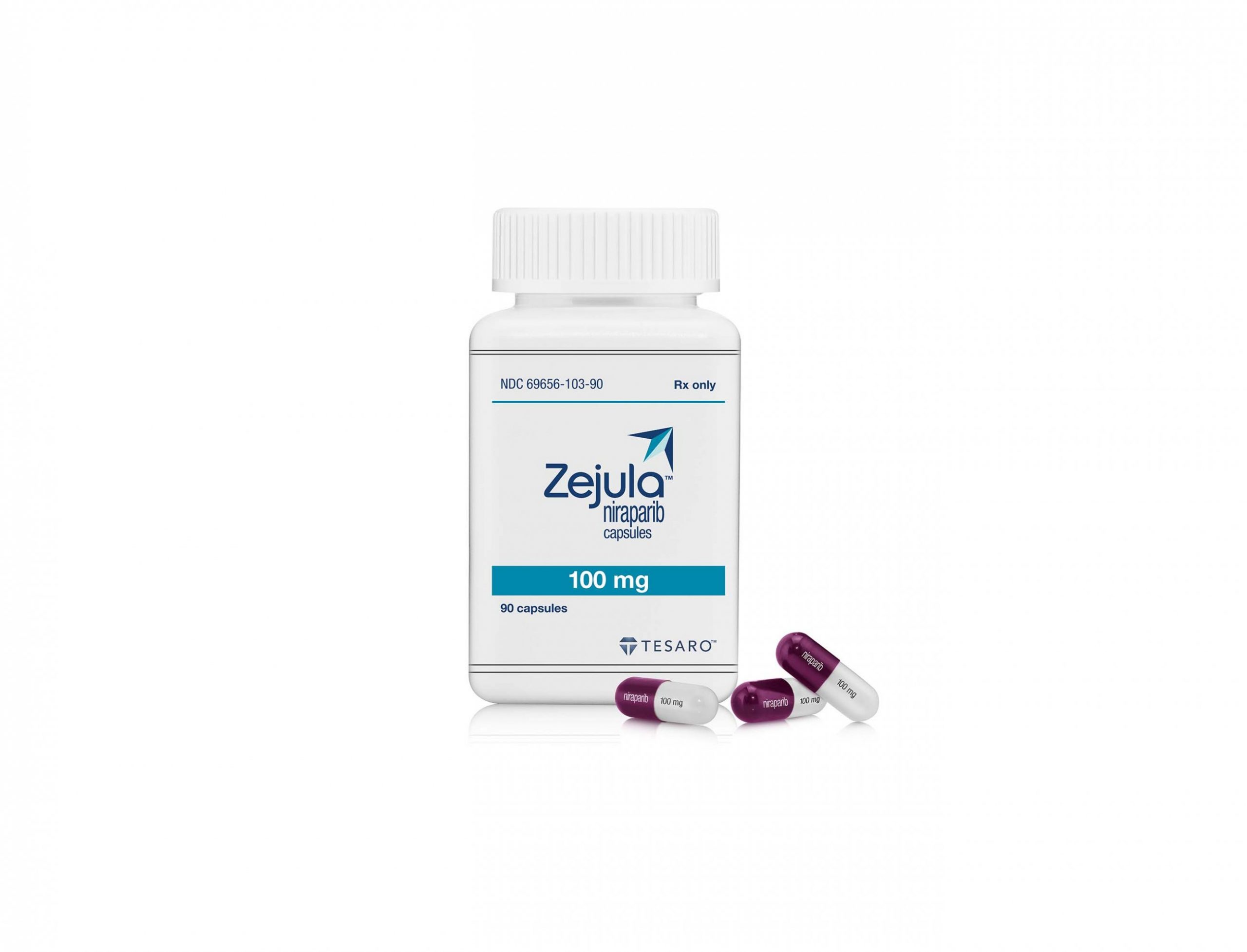Tesaro's niraparib approved in ovarian cancer

Tesaro’s niraparib has been approved as a maintenance therapy for ovarian cancer in the US, although the company experienced a setback in its bid to develop the drug in breast cancer after patients quitting a chemotherapy arm ruined the results.
According to Evaluate Pharma, niraparib, a poly-ADP ribose polymerase (PARP) inhibitor, which will be marketed as Zejula, could generate peak sales of around $2 billion.
And Tesaro hopes to develop the drug in a host of other uses after this first approval for maintenance treatment of women with recurrent epithelial, ovarian, fallopian tube, or primary peritoneal cancer, who are in complete or partial response to platinum chemotherapy.
Zejula will also not require a patient selection with a biomarker test, a blow for Myriad Genetics, which had argued that its companion diagnostic test would be needed to select patients.
This means that Zejula is first PARP inhibitor to market in the maintenance therapy indication after AstraZeneca’s Lynparza (olaparib) failed to impress an FDA expert panel in this use back in 2014.
Lynparza, the first PARP inhibitor to market, was later approved by the FDA in an advanced ovarian cancer indication, after failure of three or more lines of chemotherapy, along with a diagnostic test for defective BRCA genes.
However, it has just reported strong results in phase 3 trials, including its use as ovarian cancer maintenance therapy, that could help it establish a firmer grip on the market.
Clovis’ Rubraca (rucaparib) has also been approved in advanced ovarian cancer with a BRCA test.
To counter this, Tesaro will now press on with the development of Zejula in a host of other uses, including a first line ovarian cancer maintenance treatment in combination with an anti-PD-1 antibody, and in combination with Roche’s Avastin (bevacizumab) in patients with first recurrence of the disease, instead of chemo.
Tesaro also plans trials in metastatic triple-negative breast cancer in combination with Merck & Co's Keytruda, and in indications including metastatic non-small cell lung cancer, in combination with an anti PD-1 antibody.
Problems in breast cancer trial
Tesaro has already begun the BRAVO study assessing Zejula in breast cancer with BRCA mutations – but following an independent data analysis, Tesaro said the trial is unlikely to produce data suitable for registration.
A large number of patients in the chemotherapy arm did not continue with the trial long enough to receive their first radiological scan required to assess disease progression.
Tesaro said patients wanted to be treated with a PARP inhibitor rather than chemotherapy and quit to get treatment with rival PARP inhibitors.
A steering committee will decide whether enrollment will continue, although no new safety concerns emerged.













